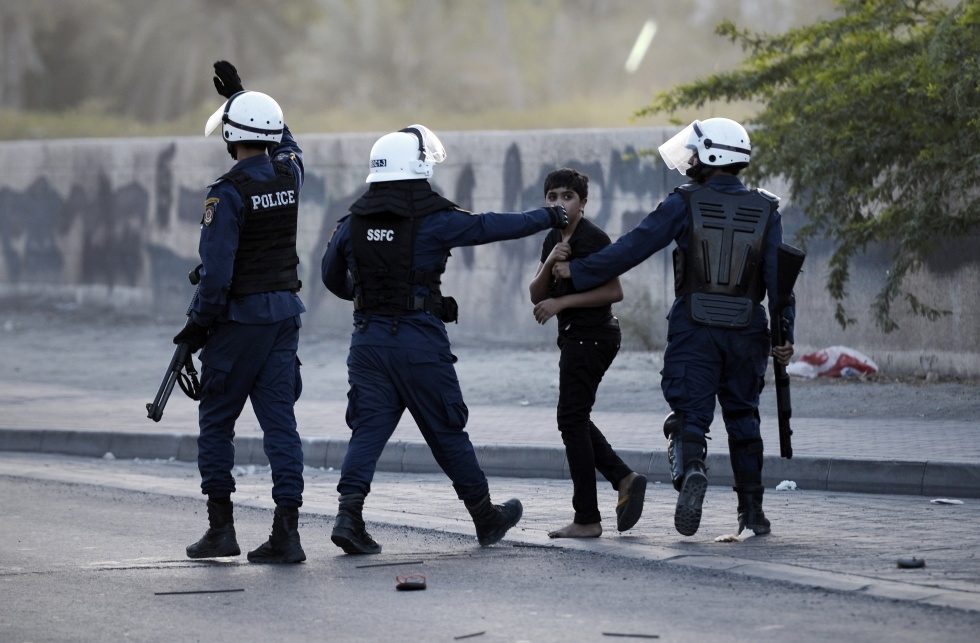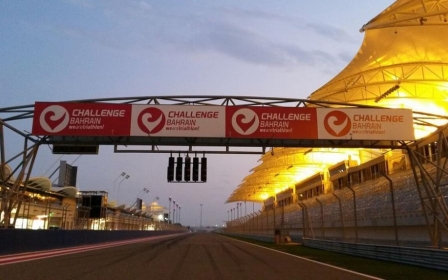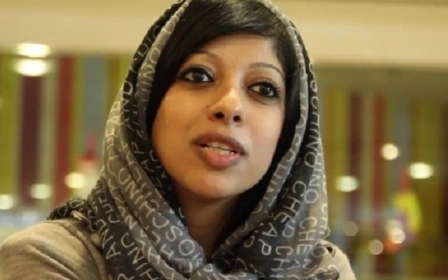Two bomb attacks rock Bahrain

A bomb blast Tuesday killed one person in a village in western Bahrain, while a separate attack late Monday killed a policeman in a nearby Shiite village, the authorities said.
Tuesday's explosion took place in Karzakan village, killing a Bahraini and slightly wounding an Asian national, the interior ministry said, describing it as a "terrorist" attack.
Meanwhile, an on-duty policeman was killed in an earlier bomb attack in the Shiite village of Damistan, 20 kilometres southwest of the capital Manama.
No official statement has been released by the government so far, who have only tweeted about it.
On his Twitter page, the Foreign Minister Khaled al-Khalifa blamed the Lebanese group Hezbollah for the attack.
"Another policeman has become a martyr in Bahrain…he was killed by a bomb made by the terrorist Hezbollah," the minister wrote.
The policeman, Ali Mohammed Ali, was a Jordanian officer who was part of the security training forces.
The Bahraini and Jordanian governments signed a security contract that allows the training and exchange of experiences regarding law enforcement officers.
No further official information was provided.
It was the first deadly attack on the security forces since parliamentary elections on 22 November that were boycotted by the main Shiite opposition group Al-Wefaq, which is calling for democratic reforms in the kingdom.
Al-Wefaq released a statement distancing themselves from the attack.
"The National Democratic Opposition reiterates persistence to peaceful activism and the absolute refusal of any form of violence. The opposition condemns the killing of a security policeman last night in Damistan area."
The statement also called on the Bahraini government not to punish the village for the bomb attack.
"The Authority must not resort to collective punishment by besieging residential areas near the site of the incident."
Protests still frequently break out in Bahrain's Shiite villages, sometimes sparking clashes with police.
Since the February 2011 protests for democratic reform began, 14 police officers have been killed.
A Bahraini court ruling in October 2014 suspended Al-Wefaq’s activities for three months, after the government alleged that the group had broken the law.
The government clamped down hard on opposition demonstrations, dismantling the Pearl Roundabout which acted as the centre point for the mass protests.
On 5 July, a policeman Mahmud Farid was killed in what the Ministry of Interior described as a “terrorist bombing” in the village of East Ekar, south of Manama.
The deadliest round of violence concerning officers took place on 3 March, where a group of policemen were killed in the Shiite village of Deraz. A remotely detonated bomb killed three policemen, including one from the UAE.
On the third anniversary of the protests, another policeman was killed.
The Bahraini government blames Hezbollah, which it had designated as a terrorist organization last year, of training militant cells in the country.
Manama also accuses Iran of involvement in promoting violence and inciting Bahrain's Shiites.
The tiny island kingdom is a strategic ally of the United States and home to the US Navy’s Fifth Fleet.
Hundreds of protesters have been arrested, and rights groups have been critical of the government.
Shiites form a majority in the kingdom but the government – which is led by a Sunni royal family - is accused of curbing their rights.
New MEE newsletter: Jerusalem Dispatch
Sign up to get the latest insights and analysis on Israel-Palestine, alongside Turkey Unpacked and other MEE newsletters
Middle East Eye delivers independent and unrivalled coverage and analysis of the Middle East, North Africa and beyond. To learn more about republishing this content and the associated fees, please fill out this form. More about MEE can be found here.




